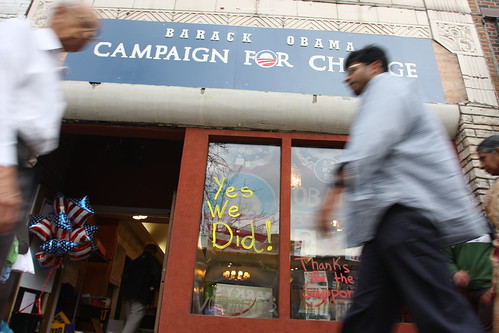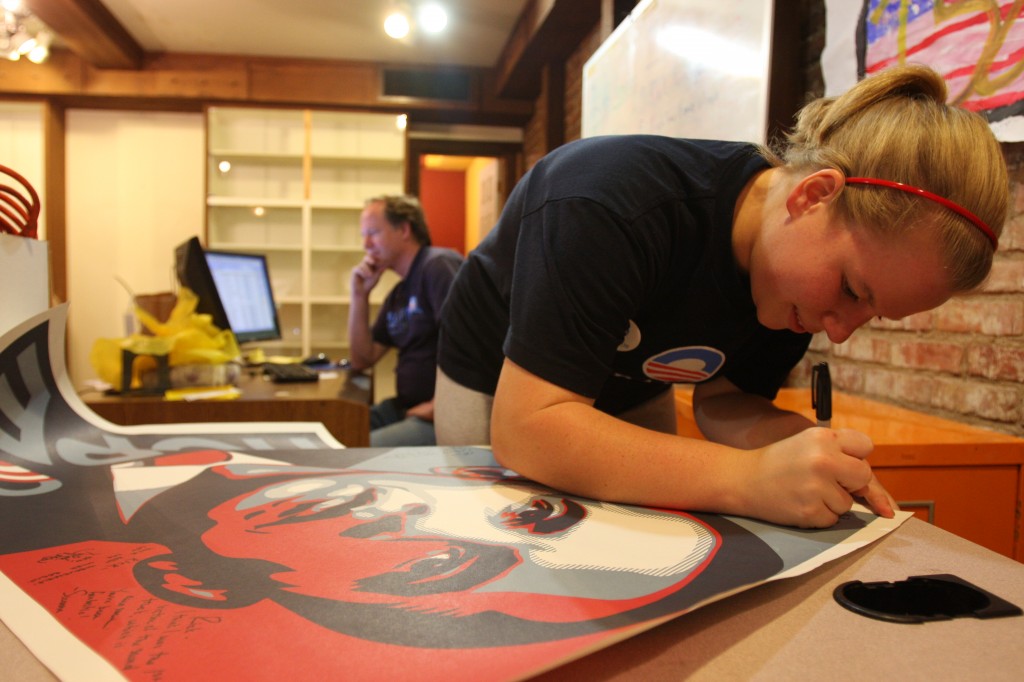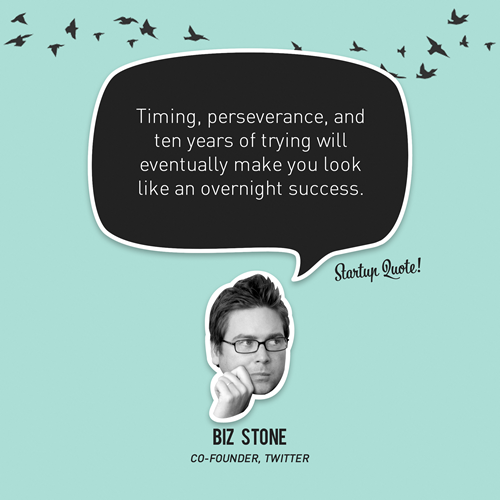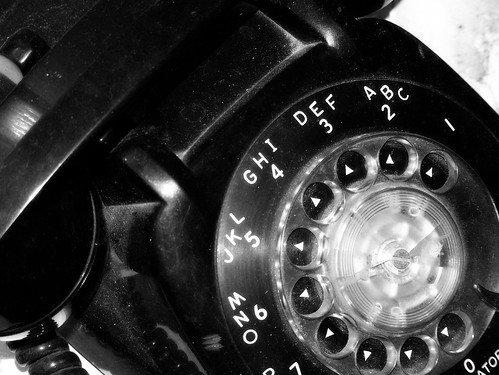 Things tend to go wrong. This is a series of blog posts about the things I think about during those moments when the wrong things happen.
Things tend to go wrong. This is a series of blog posts about the things I think about during those moments when the wrong things happen.
It’s my senior year at school. I’m in a photography class that I need to pass for graduation. The prof hands us a final assignment: A portfolio of seven photos. We’ve got a month to shoot it. These seven photos are worth half of our final grade.
I have a roommate working for the Obama campaign in mid-Missouri. The day after the election, I go with him to the office. They’re shutting everything down, and everyone’s saying their goodbyes. I spend the day there with my camera, shooting portraits, shooting the office. I get my seven photos. I’m happy.
About a week before the assignment is due, I pull out the grading rubric. I’ve got all the details down. I’ve got my seven photos. I’ve got a range of subjects and photographic styles.
Then I see this little sentence about halfway down the page:
“Please photograph only one person.”
Uh-oh.
I’ve got a lot of photos. And they’re of lots of different people.
I probably should have read the rubric a bit more closely before starting the project.
But this is no time to panic. I open up the laptop, tab over to Wikipedia and begin hammering out a 1,500 word essay on Albert Camus’ “The Stranger.” My essay is titled, “An Overly Complex Explanation of Why I Am Unable to Obey Rules and Instead Choose to Fight Unnecessary Existential Battles.” In it, I argue that I am presenting a portfolio of photos about Barack Obama in which Barack Obama does not appear. Instead, he appears through the faces of his campaign workers and volunteers — the people who fought for him, who worked for him, who took his beliefs and ideals and made them their own.
I write:
So I see this final project as a photo essay about the faces of one man: Barack Obama. Each of the people I’ve photographed was so involved with the campaign that on election day, they viewed the Obama victory as a clear validation of their own efforts and their own beliefs….
What I’m arguing is that existentially, every single Obama volunteer ceased to exist as an individual for a few months and took on the personality and belief system of Barack Obama. They believed in him to the point where they could feasibly understand Obama and understand the emotions that he went through during the election. I am arguing, ridiculous as it sounds, that a person is not defined by the physical body but by the ability for rational, independent thought. And as every single Obama volunteer acted as a representative of Barack Obama, working for his thoughts/ideas/beliefs, these volunteers were merely an extension of Obama.
So what follows is my photo essay about Barack Obama, the day after the election. The catch is that the physical presence of Barack Obama does not appear.
I attach the essay to my portfolio. It is a historic piece of bullshit, and I am convinced that my teacher — who I have already pissed off a few times this semester — will call me out on it.
She does not. I am, instead, given an A- for my work, and my teacher commends me for my creativity.
I have gone from “Oh, fuck!” to “Fuck, yeah!”
Which brings me around to something my dad likes to say. I grew up an amazingly lucky kid. I grew up in a nice suburb, and I went to a great school. My elementary school had a planetarium — not the Hayden or anything, but still, a big dome on which you could trace the structure of Milky Way — and I didn’t think much of it. For the longest time, I assumed every school had a planetarium. I got to go on vacations to the beach and to the mountains. Before I graduated high school, I’d been to four continents.
This all seemed ordinary.
Dad likes to refer to me and my two siblings as The Lucky Sperm Club, and he’s absolutely right. I was born into a world that was far too good to me. My world was safe. My parents were — still are, actually — happily married. I had my own car, my own room, and all the Girl Scout cookies I could eat. Today, I’m not saddled by college-related debt because my family had the money to put me through school.
I was born into this Wonder Years of a life, and into a world that nurtured me and let me focus on just growing up.
The deck was absolutely stacked in my favor.
So when I end up in a situation where I’m convinced that everything’s going wrong, it’s not hard for me to remind myself to stop making excuses. I didn’t grow up in a world that threw roadblocks at me. My world was one where people got fast-tracked to opportunity.
I try to remind myself: Shut up and deal with adversity, Dan. It’s about time you had some in your life.









